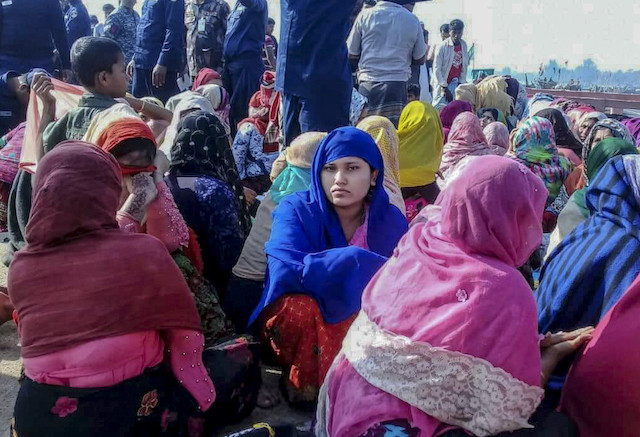Popular Reads
Top Results
Can't find what you're looking for?
View all search resultsPopular Reads
Top Results
Can't find what you're looking for?
View all search resultsIndonesian ASEAN rights representative expresses concern as Malaysia turns away refugees
Indonesia’s representative to the ASEAN Intergovernmental Human Rights Commission (AICHR), Yuyun Wahyuningrum, says ASEAN member states should show compassion during the COVID-19 pandemic.
Change text size
Gift Premium Articles
to Anyone
I
ndonesia’s representative to the ASEAN Intergovernmental Human Rights Commission (AICHR), Yuyun Wahyuningrum, has expressed concern about the refusal of Malaysian authorities to allow Rohingya refugees to enter the country because of COVID-19 fears.
Last week, Malaysia denied entry to a boat carrying about 200 Rohingya after news emerged that scores had died on another crowded vessel, AFP reported.
In a response to the news on Wednesday, Yuyun argued that countries should show compassion during the pandemic, especially for those who are marginalized and in desperate need of assistance, such as the Rohingya.
“Tightening border controls and limiting freedom of movement may be necessary to reduce the spread of COVID-19. However, they should not push people away who are fleeing persecution,” said Yuyun.
She said ASEAN member states had already established COVID-19 health protocols requiring people entering the country to undergo a 14-day quarantine in designated places.
Read also: Bangladesh rescues nearly 400 Rohingya after weeks at sea
Yuyun also said the refusal of Rohingya refugees seemed counter to a special declaration that ASEAN had adopted last week calling for member states to “prioritize the wellbeing of ASEAN people in their collective fight against COVID-19" and "provide appropriate assistance and support to the nationals of ASEAN member states affected by the pandemic in each other’s countries or in third countries".
“We should not repeat the same mistake as in 2015, when dozens of Rohingya people died at sea because their boats were prevented from landing in Malaysia, Thailand and Indonesia. The right to seek asylum is guaranteed in Article 16 of the ASEAN Human Rights Declaration [AHRD],” she said.
AFP reported that a Malaysian air force jet spotted the Rohingya boat on April 16 off the country’s northwestern island of Langkawi. Malaysian sailors gave the Rohingya refugees food before escorting them out of the country’s waters.
The military argued that undocumented migrants would bring COVID-19 into the country because of their poor living conditions and that this was why they had intensified their maritime surveillance operations.
While relatively few boats carrying the minority ethnic group have arrived in Malaysia since the 2015 crisis, some have been allowed into the country. Earlier this month, 202 Rohingya who landed in Langkawi were detained.







